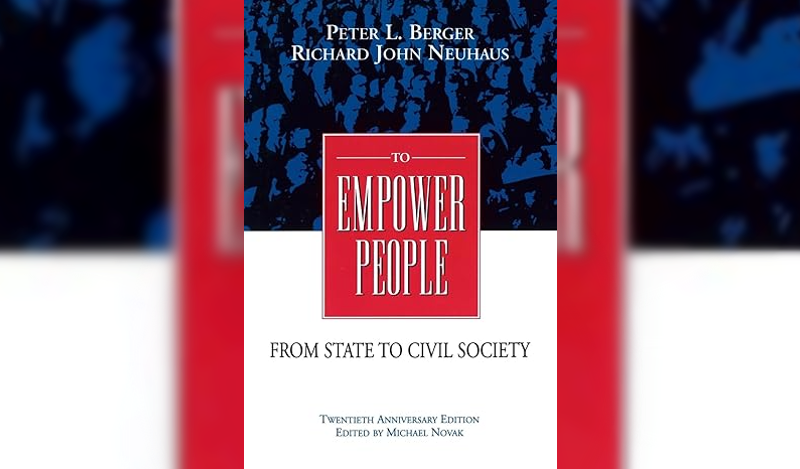Welcome to Our Research Archive
Search and filter by content type, issue area, author, and keyword
- ✕ Clear Filter
- Adam J. White (1)
- Angela Rachidi (62)
- Beth Akers (39)
- Brent Orrell (101)
- Bruce D. Meyer (15)
- Casey B. Mulligan (1)
- Charles Murray (1)
- Daniel A. Cox (11)
- Edward J. Pinto (28)
- Edward L. Glaeser (10)
- Frederick M. Hess (40)
- Greg Wright (1)
- Howard Husock (91)
- Ian Rowe (15)
- James C. Capretta (1)
- James Pethokoukis (20)
- John Bailey (2)
- Joseph Fuller (5)
- Kevin Corinth (76)
- Kyle Pomerleau (9)
- Leslie Ford (6)
- marie cohen (1)
- Mark Schneider (9)
- Mason M. Bishop (2)
- Matt Weidinger (84)
- Matthew Continetti (1)
- Max Eden (3)
- Michael Barone (1)
- Michael Brickman (3)
- Michael Pugh (2)
- Michael R. Strain (35)
- Naomi E. Feldman (1)
- Naomi Schaefer Riley (67)
- Nat Malkus (21)
- Nicholas Eberstadt (5)
- Paul Ryan (3)
- Preston Cooper (38)
- R. Glenn Hubbard (4)
- Ramesh Ponnuru (5)
- Raphael Colard (1)
- Richard Burkhauser (8)
- Richard V. Burkhauser (4)
- Robert Cherry (6)
- Robert Doar (14)
- Robert Pondiscio (18)
- Ross Douthat (2)
- Ryan Streeter (5)
- Sally Satel (2)
- Samuel J. Abrams (7)
- Scott Winship (62)
- Stan Veuger (10)
- Timothy P. Carney (16)
- Tobias Peter (35)
- W. Bradford Wilcox (86)
- Yuval Levin (10)

June 18, 2024
Economic Opportunity and Social Mobility
Years ago, I worked at the Pew Charitable Trusts on something called the Economic Mobility Project. In 2009, we commissioned a survey covering opportunity, mobility, and the American Dream. One revealing question we asked was the following: The term American Dream means different things to different people. Here are some ways some people have described…

May 30, 2024
The Truth about Trends in Worker Pay
Time was, only progressives made outlandish claims such as that hourly wages have been stagnant for more than half a century. But with the rise of populism on the right, “doomerism” now transcends ideology. It’s the national-conservative group American Compass that is now saying that the typical worker makes only 1 percent more today than he…

May 20, 2024
Indivar Dutta-Gupta and Scott Winship on the 60th Anniversary of LBJ’s “War on Poverty” on C-SPAN’s “Washington Journal”
Indivar Dutta-Gupta and Scott Winship talked about the 60th anniversary of President Lyndon B. Johnson’s “Great Society” speech and the war on poverty.

May 16, 2024
Critiquing Bastian (2022, 2023, 2024, and forthcoming):On Child Tax Credit Reform and the Sensitivity of Single Mothers to Work Incentives
Abstract In 2021, Congress passed and President Biden signed a major, but temporary, reform to the Child Tax Credit (CTC). Among other reforms to the credit, the American Rescue Plan Act (ARPA) made it available to non-workers on the same basis as workers. Attempts to make this reform permanent foundered, in part, due to opposition…

May 14, 2024
Understanding Trends in Worker Pay over the Past 50 years
Key Points Executive Summary Doomers on the political left and right agree that economic growth has failed to translate into higher wages for American workers, with some claiming that pay has barely risen in 50 years. Such sentiments have been buttressed by flawed analyses that, comparing apples to oranges in a variety of ways, have…

April 22, 2024
The Promise and Peril of Civic Renewal: Richard John Neuhaus, Peter L. Berger, and “To Empower People”
On April 22, AEI and the Ethics & Public Policy Center hosted a discussion on the legacy of Richard John Neuhaus and Peter L. Berger’s 1977 book, To Empower People: From State to Civil Society. The book explored the importance of “mediating institutions” such as family, church, and community to a healthy social fabric. AEI’s…

March 28, 2024
An Early Look at the Child Tax Credit Changes in the Tax Relief for American Families and Workers Act of 2024
Abstract The Tax Relief for American Families and Workers Act of 2024, which the US House of Representatives passed on January 31, 2024, and the Senate is now considering, would make important changes to the child tax credit (CTC) if enacted. The legislation would increase CTC payments for families with lower earnings, apply a one-year…

March 12, 2024
Family Dinners Offer a Silver Lining in a Bleak Social Capital Landscape
Across a variety of indicators, social capital in America is deteriorating. But one trend appears to be cutting across conventional wisdom—gathering the family around the dinner table. Dinners offer an especially valuable chance for family members to come together and share the day’s highs and lows; discuss personal issues, current events, and big questions of…

February 27, 2024
Options for Improving the Child Tax Credit Provisions in H.R. 7024, the Tax Relief for American Families and Workers Act of 2024
H.R. 7024, the Tax Relief for American Families and Workers Act of 2024, passed the House on January 31, 2024 and now faces an uncertain fate in the Senate. The bill is intended to offer something for both Republicans and Democrats—business tax cuts and an expansion of the Child Tax Credit (CTC). But this bargain—which…

February 8, 2024
Another Flawed Analysis Shows that Single Mothers are Highly Sensitive to Changes in Work Incentives
Tuesday, I published a critique of a paper by Council of Economic Advisers senior economist Jacob Bastian related to the debate over expanding the child tax credit (CTC). In that paper, Bastian sought to discredit analyses claiming that single mothers are highly sensitive to work incentives. Specifically, he argued that the “labor supply elasticities” used…